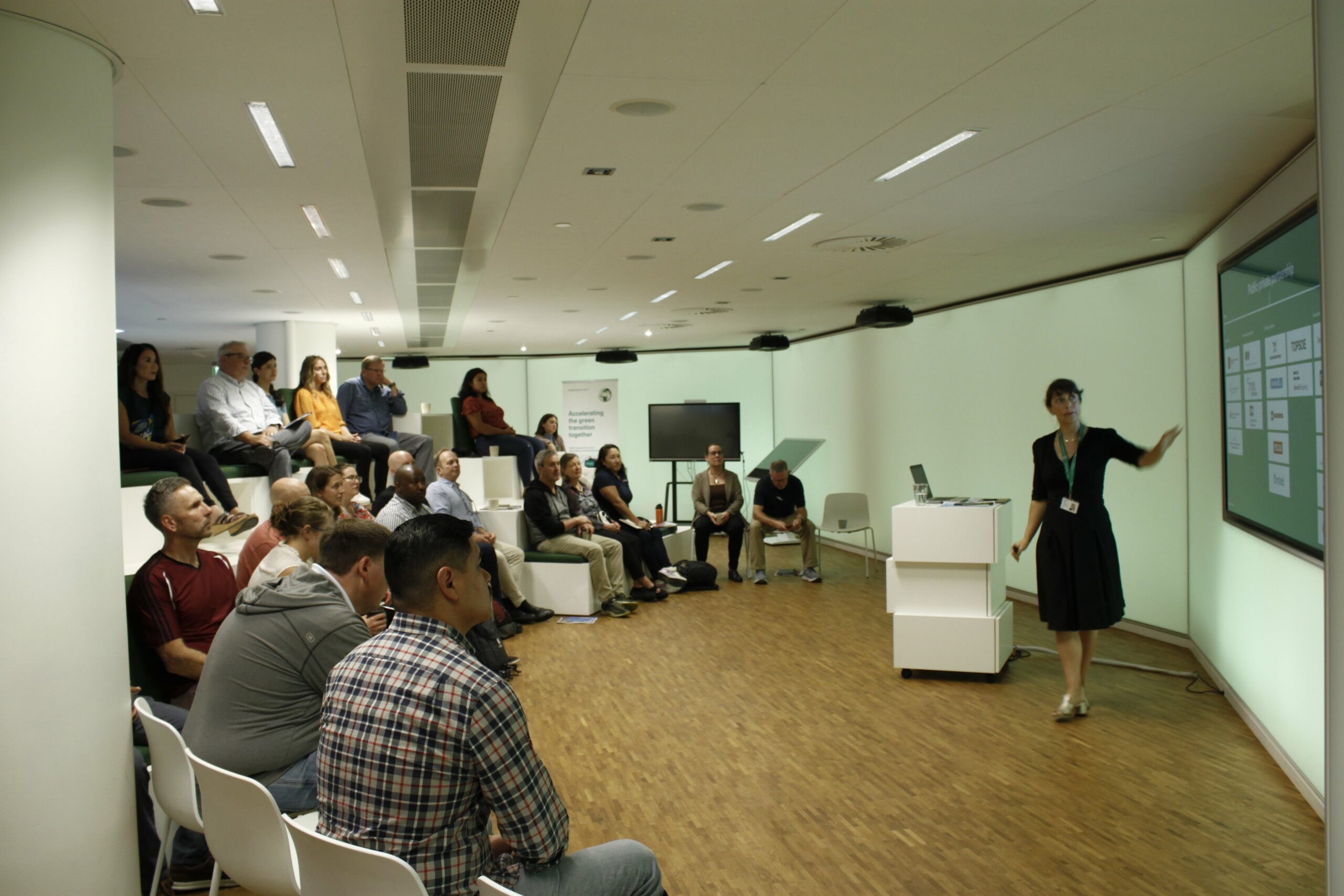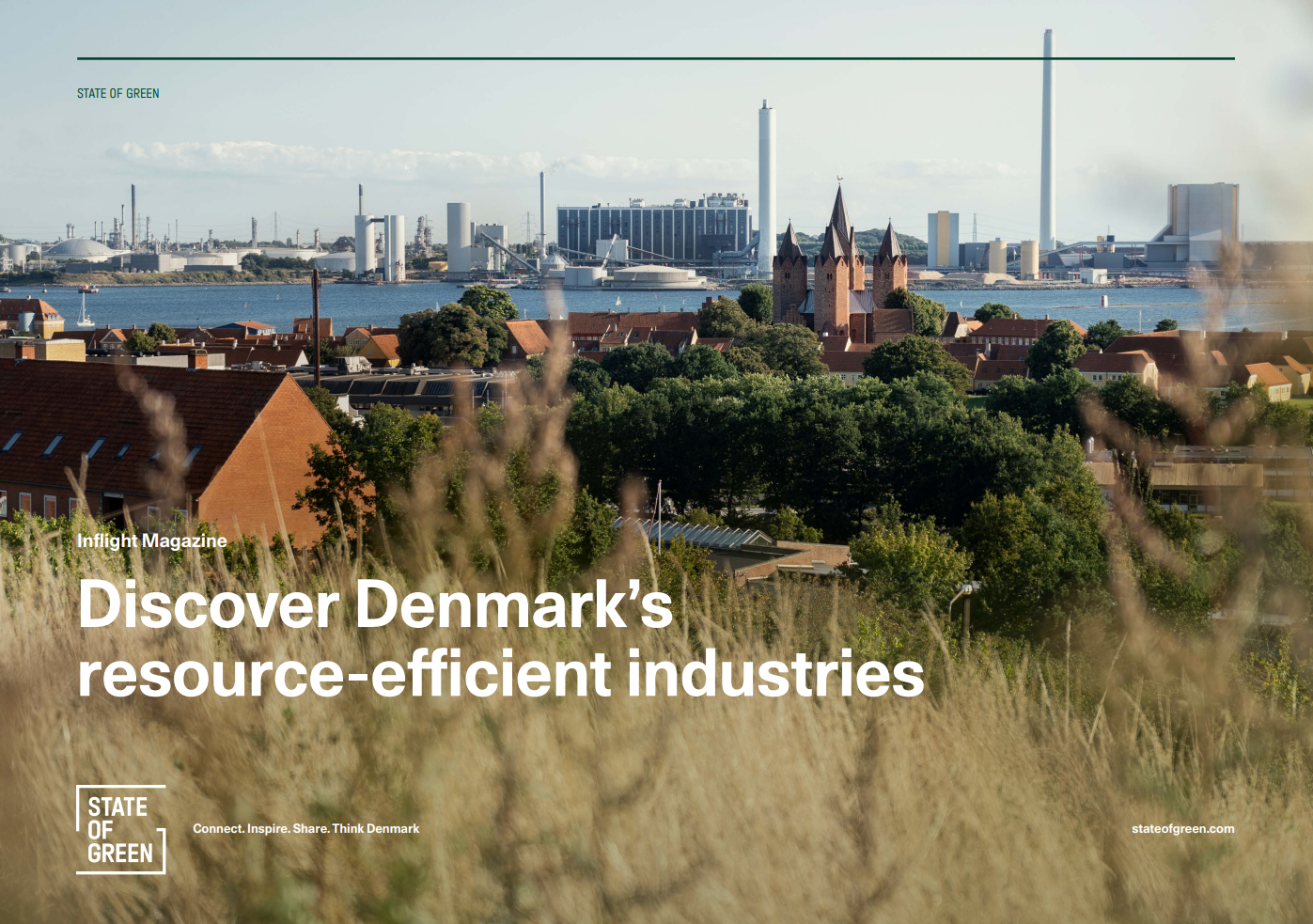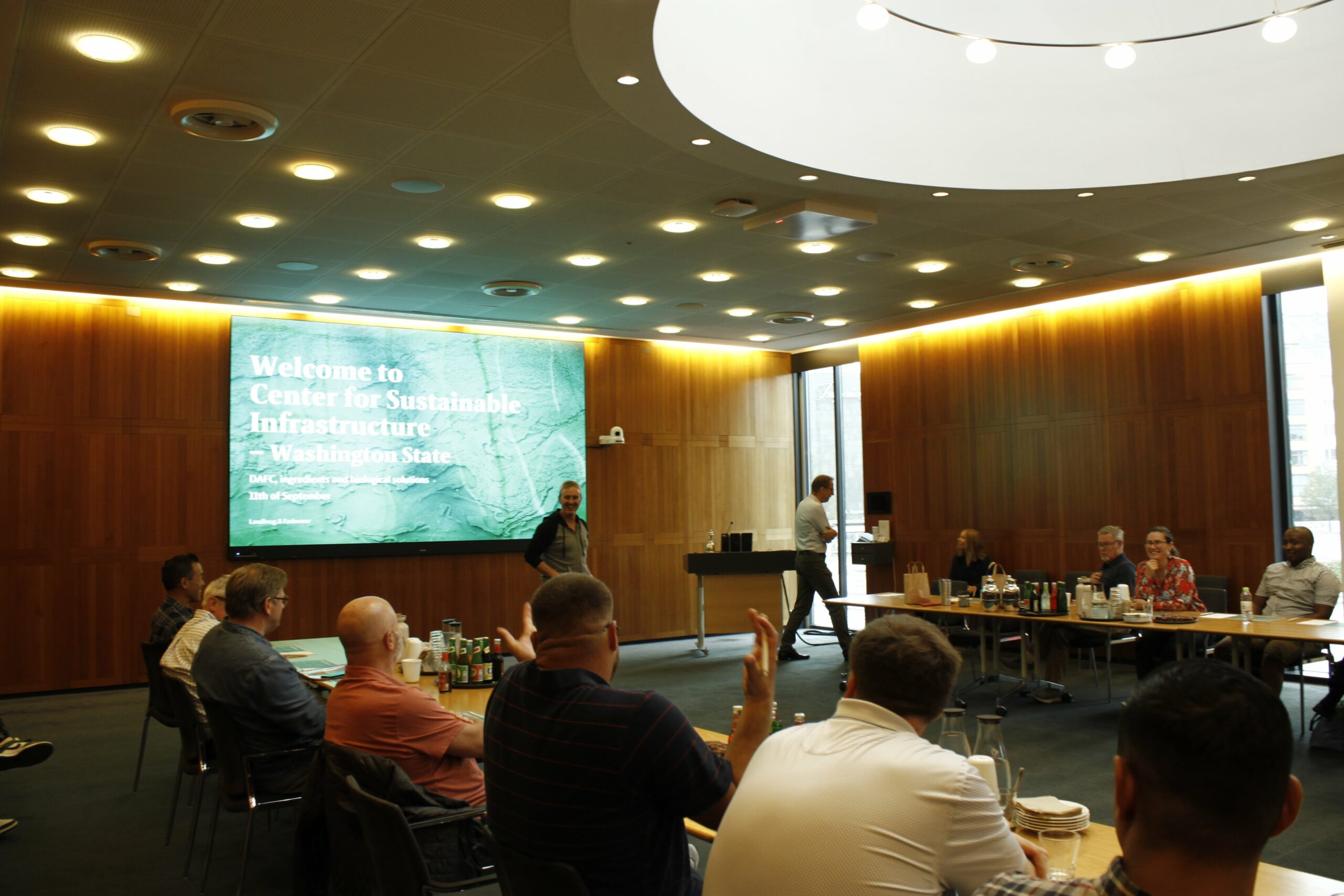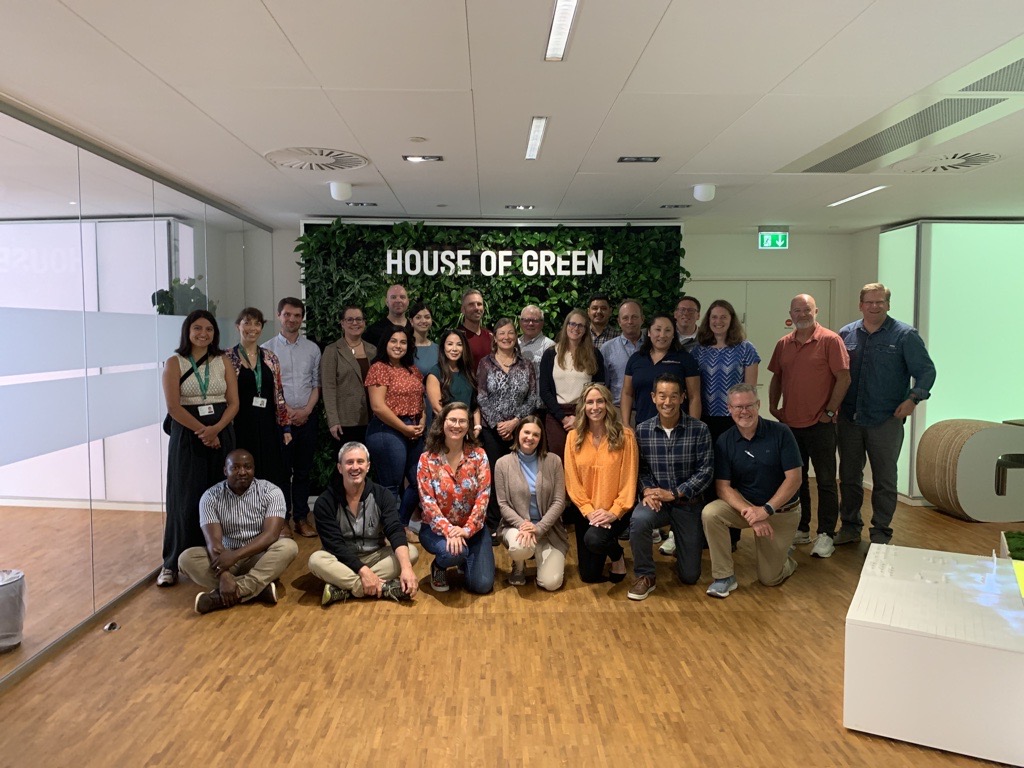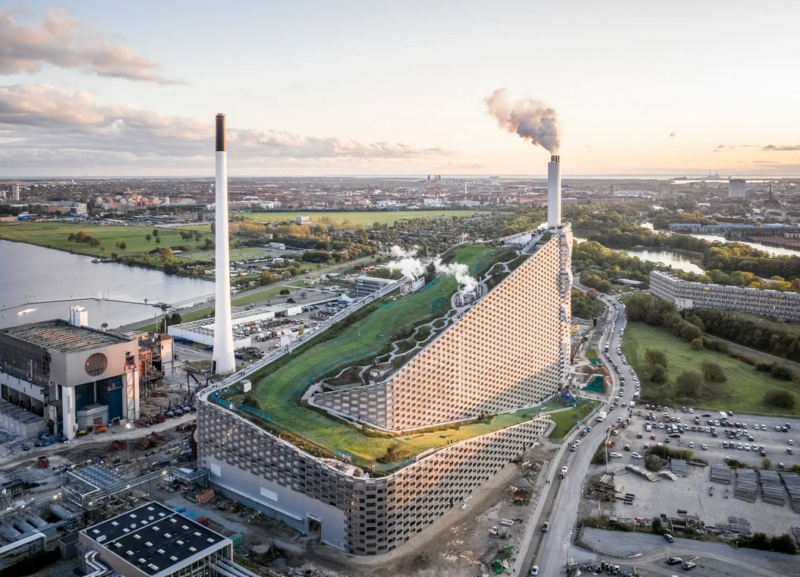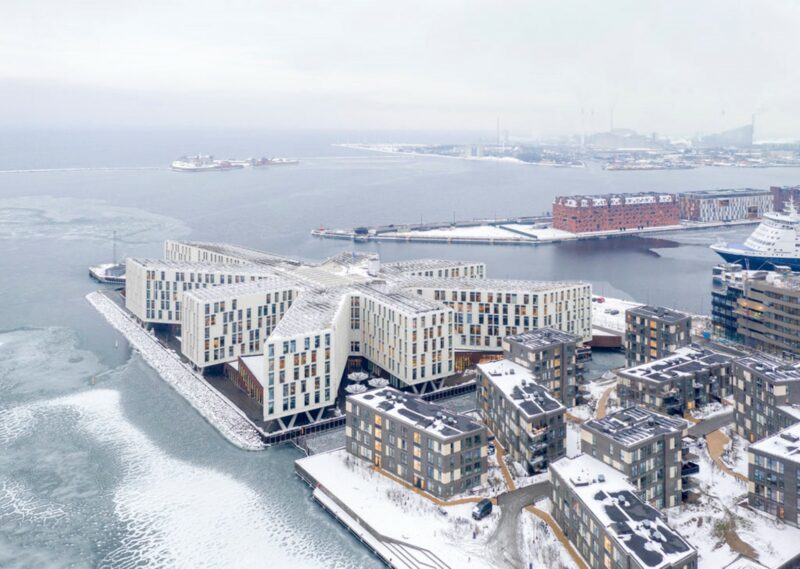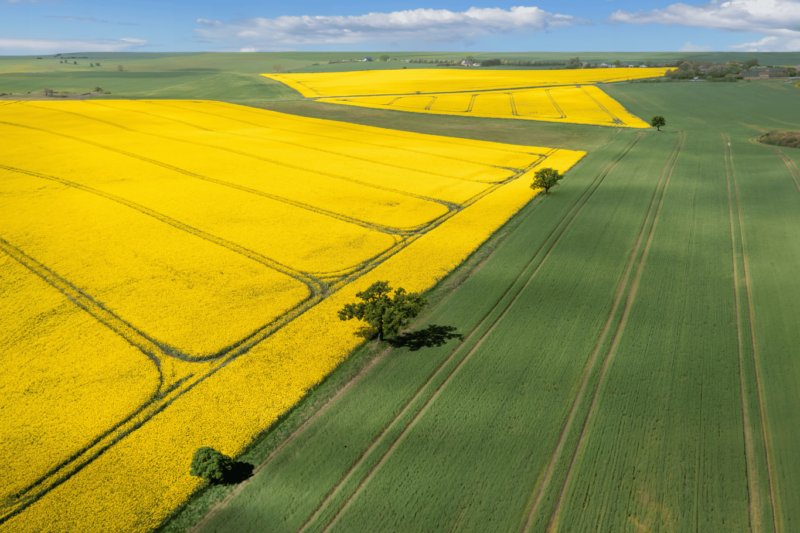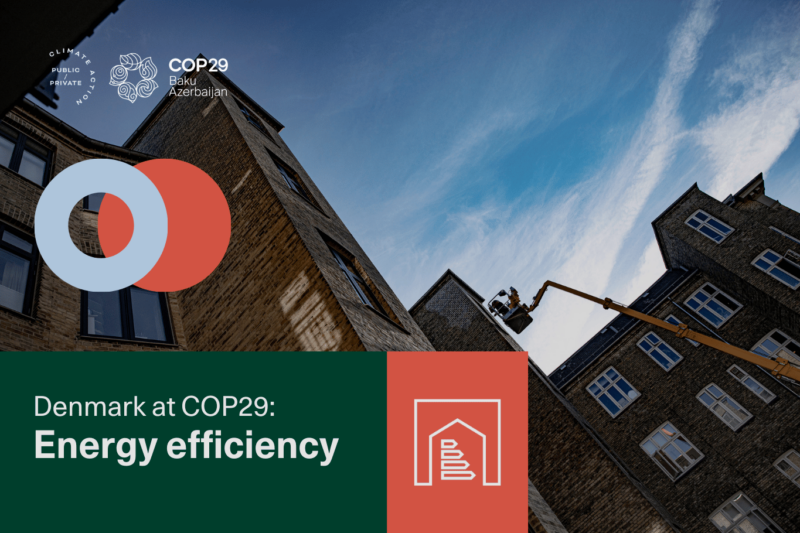For decades, Denmark has prioritized resource efficiency, successfully decoupling economic growth from resource consumption. The Danish food and beverage industry has significantly reduced energy intensity, with a more than 50% decrease from 1990 to 2018, while the industry as a whole has decreased by approximately 40% in the EU.
This drive for energy conservation is fueled by a circular approach, especially in energy-intensive sectors like food and beverage. Initiatives like industrial symbiosis in Denmark promote commercial partnerships between public and private organisations, fostering resource preservation and sharing through circular symbiosis.
Read more: Industrial Symbiosis: a model for growth in the circular economy
Transatlantic exchange: Sharing lessons from Denmark’s green transition
With the aim of exchanging knowledge and sharing experiences between the countries, a delegation from the US Center for Sustainable Infrastructure (CSI) was welcomed in the House of Green on Monday 11 September. This visit marked the first stop on a 5-day trip for the American delegation, consisting of Washington state senators and business profiles from the US, to explore resource efficiency solutions in the Danish food and beverage sector.
The day included an introduction to Denmark’s green energy transition by Gry Klitmose Holm, Senior Project Manager at State of Green. Lise Walbom, CEO of Food Nation, presented on sustainable food production in Denmark, and Fabian Bühler, Advisor at the Danish Energy Agency, shared insights from Denmark’s green energy policies promoting the country’s green energy agenda.
